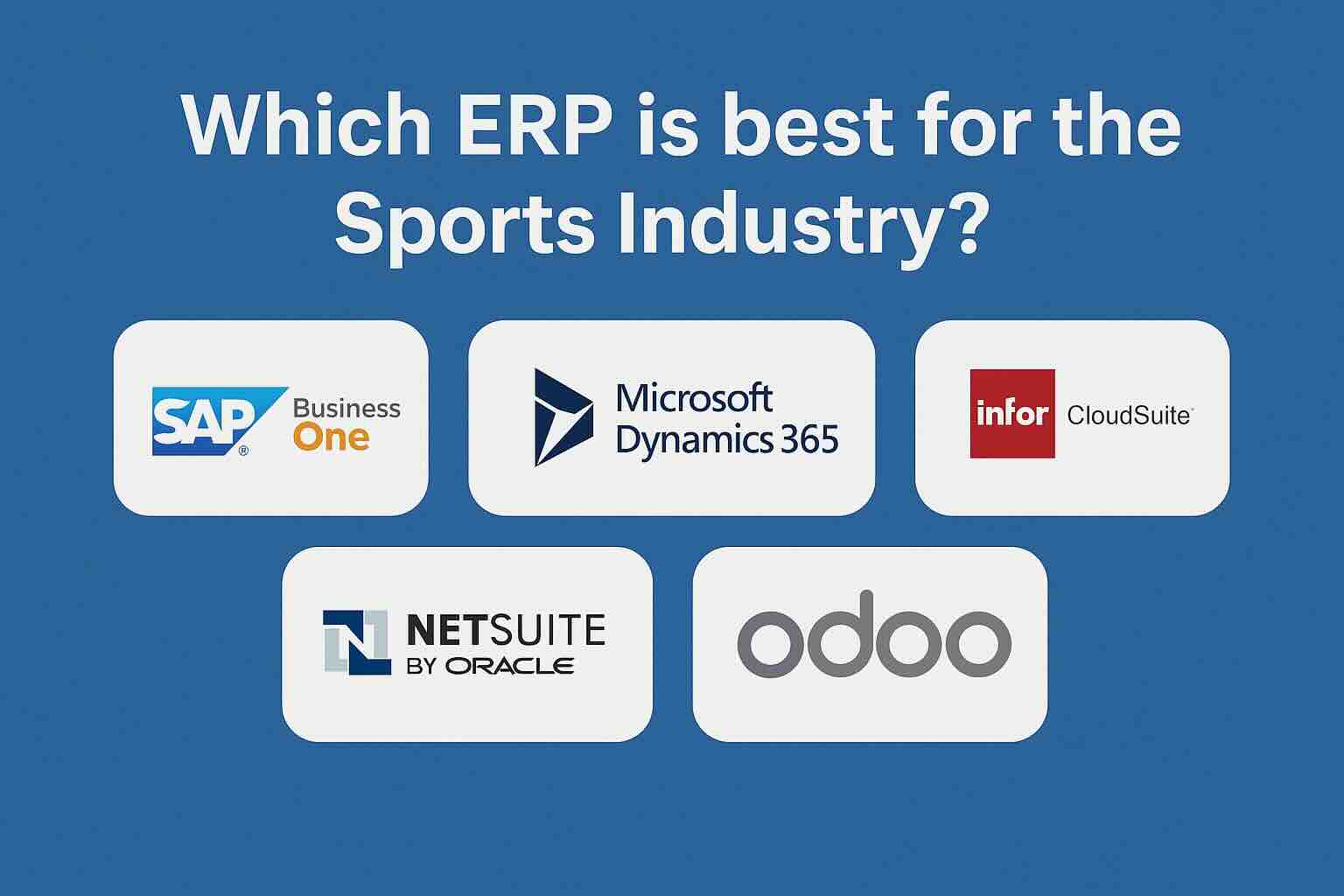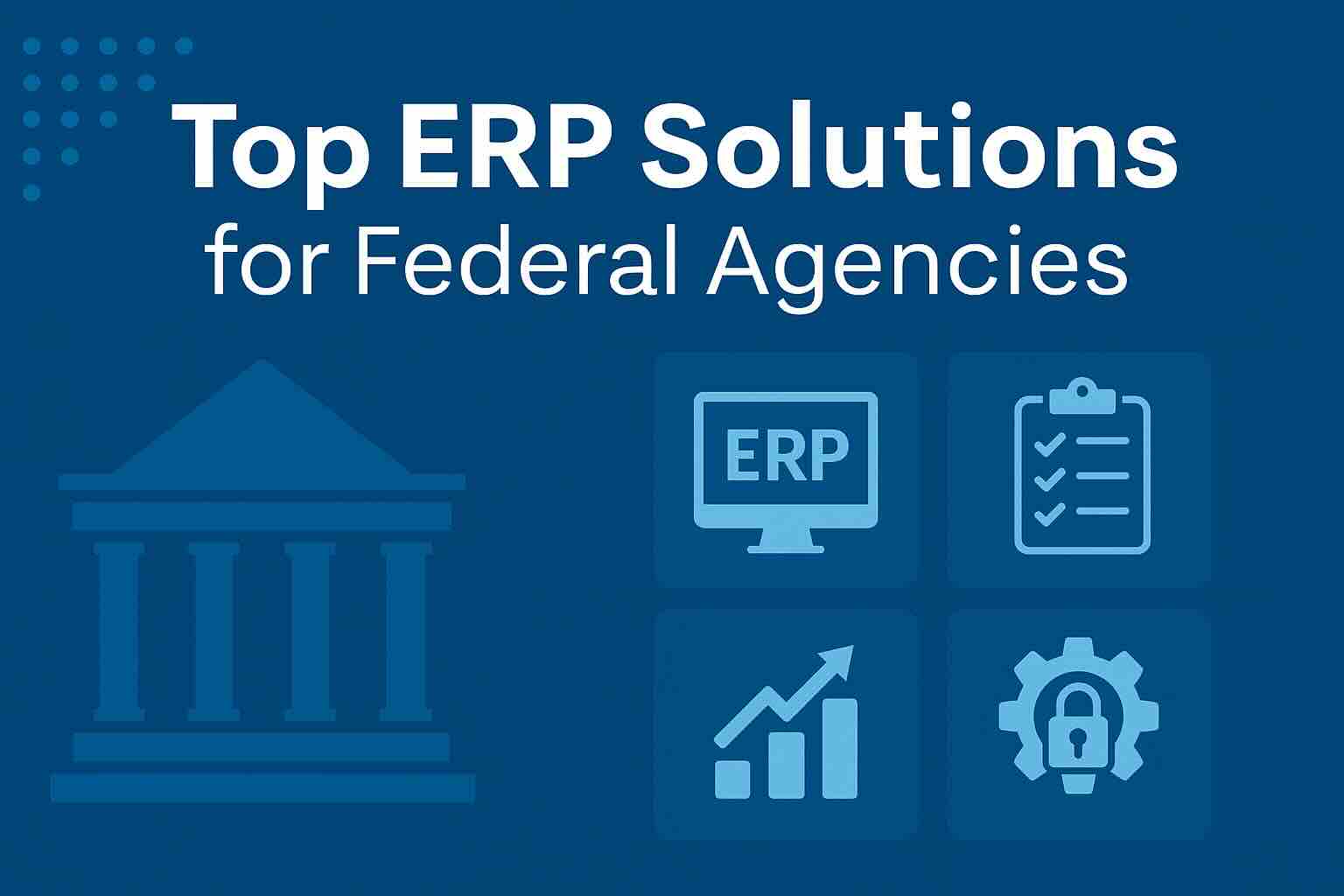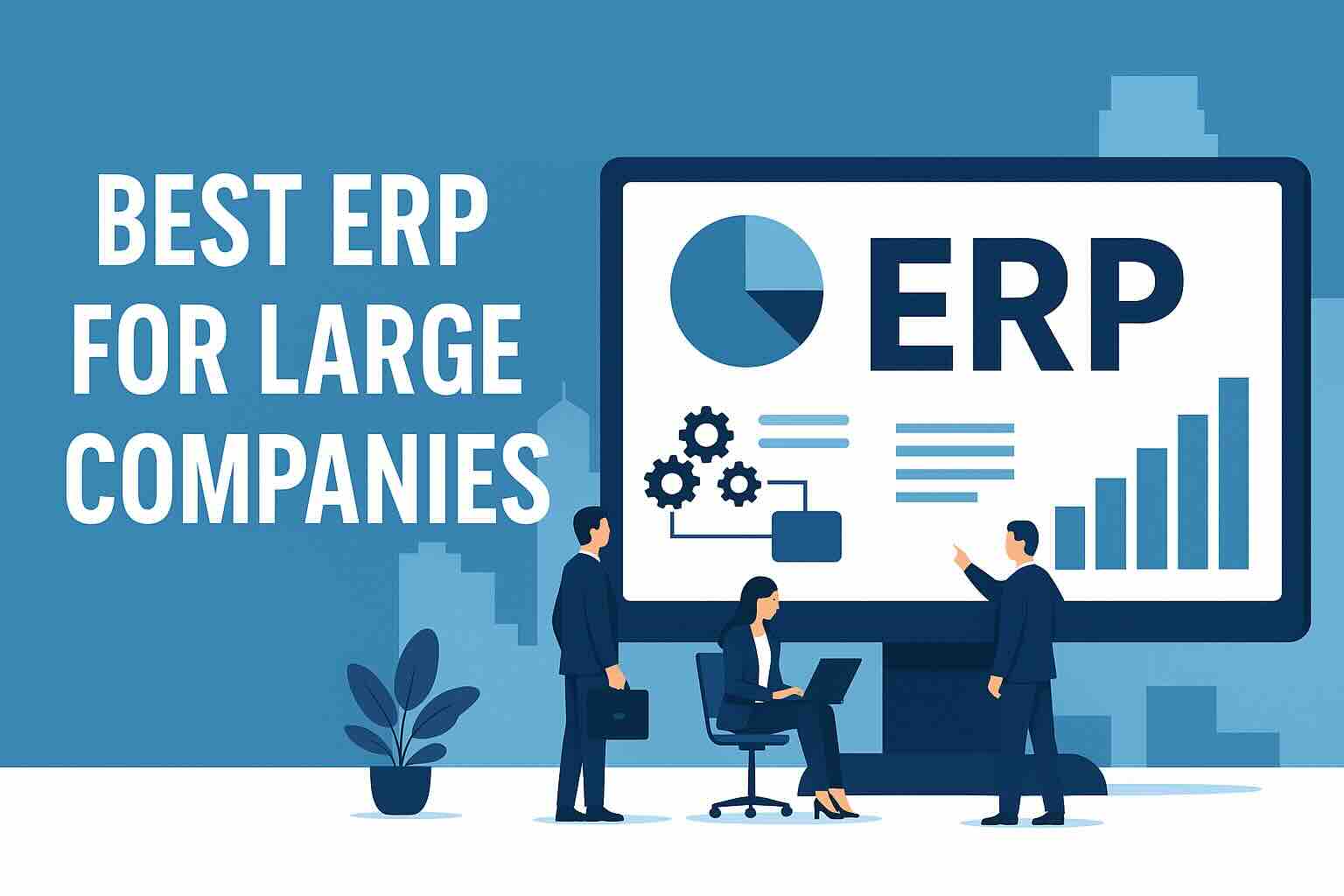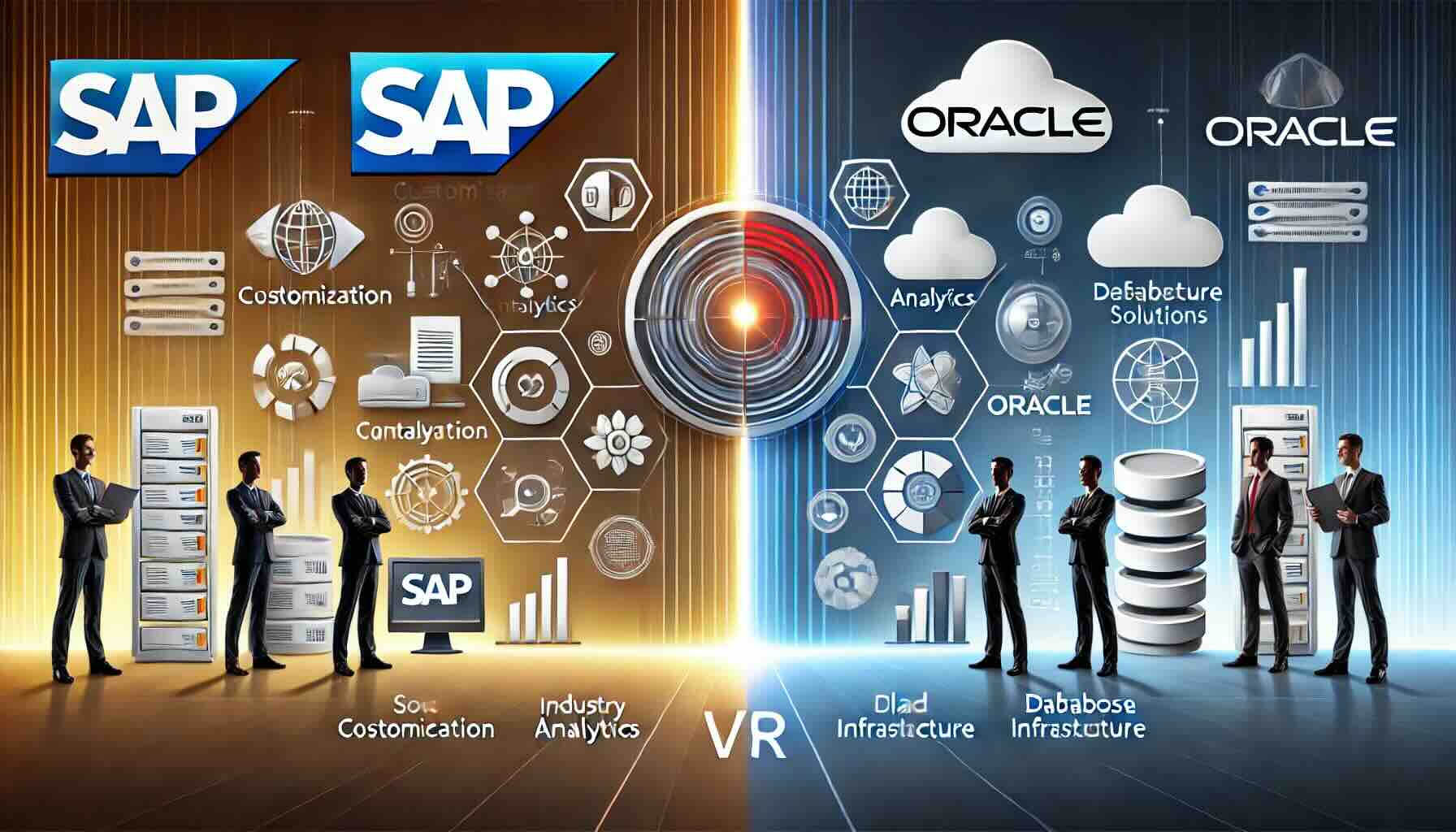Which ERP is Best for the Sports Industry?

If you’re part of the ever-evolving landscape of the sports industry – whether you’re managing a league, a club, a gym, or a retail operation – chances are you’re juggling a ton of moving parts. From inventory to membership, ticketing to sponsorships, every detail matters. This is where Enterprise Resource Planning (ERP) software comes into play. But with so many options out there, how do you choose the ERP software best for sports?
In this article, we’ll explore the unique needs of the sports industry and evaluate some of the best ERP solutions designed to meet them.
Why the Sports Industry Needs ERP Software
The sports industry is more than just games and athletes. It encompasses event planning, venue management, retail merchandise, online sales, marketing, HR, accounting, and more. ERP software acts as the central nervous system of your operation, streamlining workflows, improving data visibility, and enhancing decision-making.
Some core challenges that ERP software can address in the sports sector include:
-
Managing inventory and merchandise across online and physical stores
-
Streamlining ticketing and fan engagement
-
Handling member and athlete information
-
Scheduling events, matches, or training sessions
-
Integrating financial and accounting operations
-
Coordinating sponsorship and partnership programs
Features to Look for in an ERP Software for Sports
Before diving into which ERP systems are best, let’s identify the essential features that a sports organization should prioritize:
-
CRM Integration: To manage fan, athlete, or member relationships
-
Inventory Management: For equipment, merchandise, and retail stores
-
Event Scheduling & Ticketing: For match days, training, or tournaments
-
Accounting & Financial Reporting: To track revenue, sponsorships, and expenses
-
HR and Payroll Management: Especially important for clubs and sports academies
-
Mobile Access: For staff and athletes on the go
-
Custom Reporting & Analytics: To support strategic planning and marketing
Top ERP Software Best for Sports
1. SAP Business One
Best for: Large sports clubs and organizations with complex operations
SAP Business One is a robust ERP solution that supports end-to-end operations from financials and CRM to inventory and procurement. Its ability to scale and customize makes it a top choice for major sports entities.
Pros:
-
Deep reporting and analytics capabilities
-
Strong inventory and retail management
-
Excellent financial tools
Cons:
-
Steeper learning curve
-
Higher cost for smaller organizations
To find out more about SAP Business One you can visit this link.
2. Microsoft Dynamics 365
Best for: Clubs and franchises needing seamless integrations with Microsoft tools
Dynamics 365 offers modular ERP and CRM capabilities, perfect for sports teams and leagues that rely heavily on Microsoft’s ecosystem. Its Power BI integration adds robust data analysis and visualization.
Pros:
-
Seamless with Outlook, Excel, Teams
-
Strong CRM and financial modules
-
Scalable for growing organizations
Cons:
-
Can be expensive with add-ons
-
Customization may require expert help
To find out more about Microsoft Dynamics 365 you can visit this link.
3. NetSuite by Oracle
Best for: Multi-location sports businesses and franchises
NetSuite is ideal for sports businesses that operate across various locations or business units. From apparel retail to online ticketing, NetSuite supports a wide range of functions with cloud accessibility.
Pros:
-
Fully cloud-based with mobile access
-
Great for multi-entity businesses
-
Real-time dashboards and KPIs
Cons:
-
High initial setup cost
-
Not ideal for very small sports clubs
To find out more about NetSuite you can visit this link.
4. Infor CloudSuite
Best for: Medium to large sports organizations needing industry-specific functionality
Infor CloudSuite offers industry-tailored ERP solutions with a strong focus on service-based businesses, including sports venues, arenas, and event-driven operations. Its cloud-based architecture and modular approach make it a flexible and scalable option for sports enterprises.
Pros:
-
Designed for service and event-based industries
-
Strong analytics and reporting tools
-
Scalable cloud infrastructure with industry-specific modules
Cons:
-
Implementation can be complex
-
Premium pricing for advanced features
To find out more about Infor you can visit this link.
5. Odoo
Best for: Small to mid-sized sports businesses on a budget
Odoo is an open-source ERP that provides great flexibility. With apps for sales, inventory, HR, and events, it’s a solid choice for budget-conscious sports organizations looking for customization.
Pros:
-
Highly customizable
-
Affordable with modular pricing
-
Open-source community support
Cons:
-
DIY approach requires tech-savvy users
-
Limited support unless using paid version
To find out more about Odoo you can visit this link.
How to Choose the Right ERP for Your Sports Business
When choosing the ERP software best for sports, consider the following steps:
-
Assess Your Needs: List out the pain points in your current operations
-
Set a Budget: Factor in licensing, implementation, and maintenance costs
-
Consider Scalability: Choose a system that can grow with your business
-
Look for Industry-Specific Features: Prioritize systems with sports-centric tools
-
Ask for Demos: Most ERP providers offer demos or free trials—use them!
Final Thoughts
The right ERP software can be a game-changer for the sports industry, helping you gain better control, improve efficiency, and deliver superior experiences for fans, members, and athletes alike.
Whether you’re a major league franchise or a local sports academy, there’s an ERP solution tailored to your needs. By aligning your goals with the right platform, you can streamline your operations and stay ahead in the competitive world of sports.
Ready to Find the Best ERP Software for Your Business?
Choosing the right ERP can transform your business. With our AI-powered Compare ERP tool, you can quickly explore and compare solutions tailored to your needs. Get a personalized recommendation in less than five minutes. Our advanced engine analyzes millions of data points across 100+ ERP solutions, delivering your top three picks based on your business priorities. Best of all, it’s completely free. Take the first step toward streamlining operations and boosting productivity – start comparing today!









